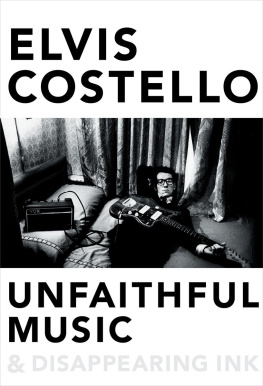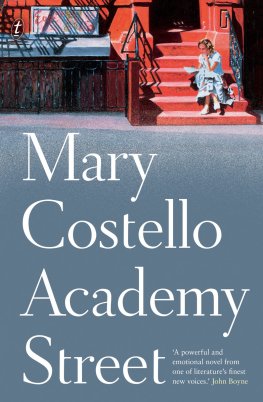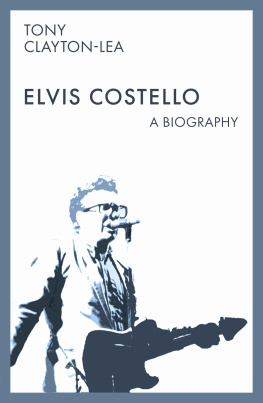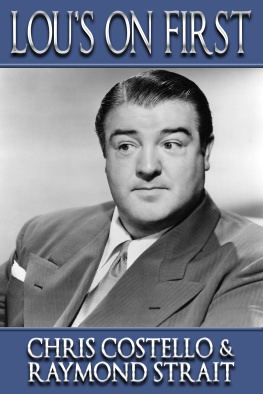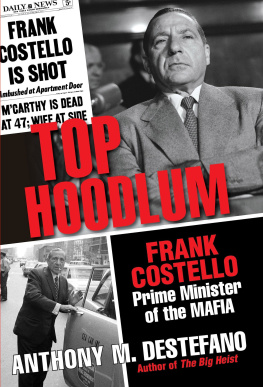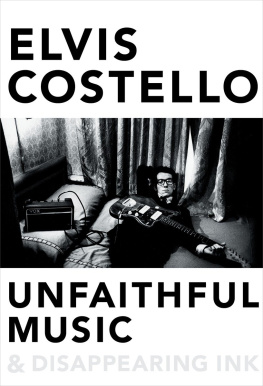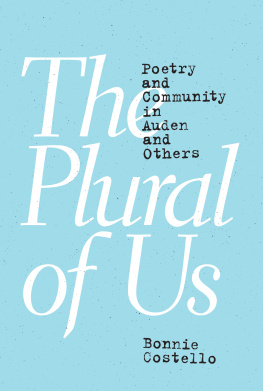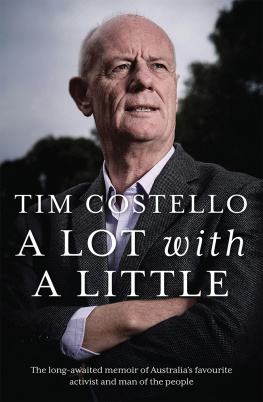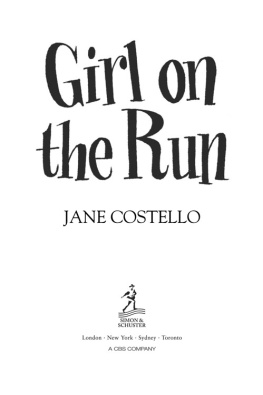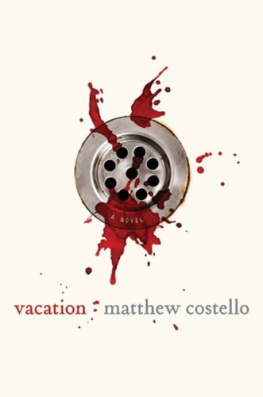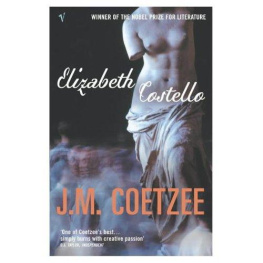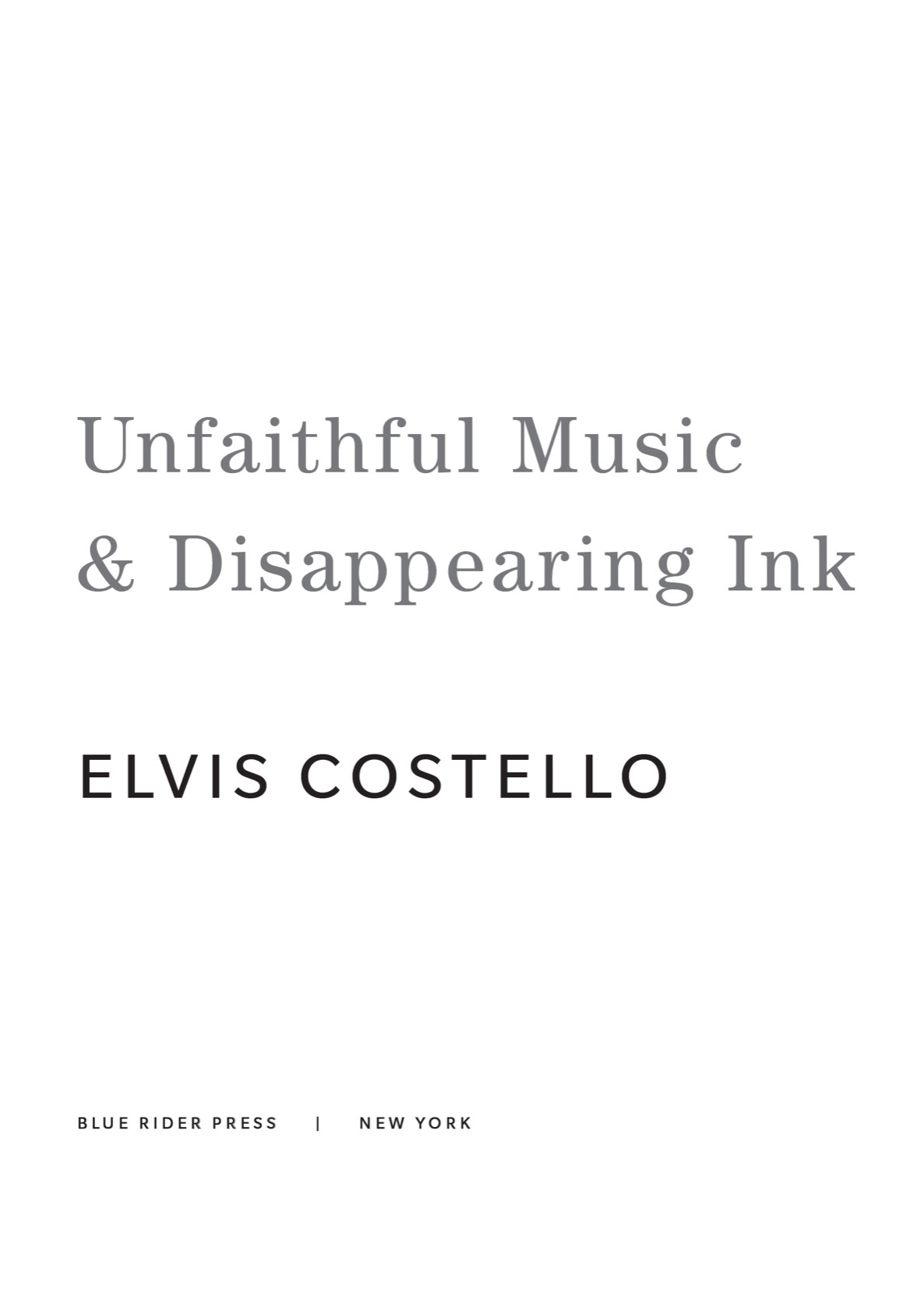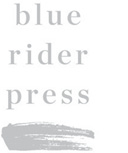Penguin supports copyright. Copyright fuels creativity, encourages diverse voices, promotes free speech, and creates a vibrant culture. Thank you for buying an authorized edition of this book and for complying with copyright laws by not reproducing, scanning, or distributing any part of it in any form without permission. You are supporting writers and allowing Penguin to continue to publish books for every reader.
constitutes an extension of this copyright page.
Blue Rider Press is a registered trademark and its colophon is a trademark of Penguin Random House LLC
Costello, Elvis.
Unfaithful music & disappearing ink / Elvis Costello.
p. cm.
1. Costello, Elvis. 2. Rock musiciansBiography. I. Title.
Penguin is committed to publishing works of quality and integrity. In that spirit, we are proud to offer this book to our readers; however, the story, the experiences, and the words are the authors alone.
ONE
A White Boy in the Hammersmith Palais
I think it was my love of wrestling that first took me to the dance hall.
There was barely a week of my childhood in which I did not have the following dialogue with a stranger:
Any relation?
Beg your pardon?
You know? Any relation to the wrestler?
My mother might wearily manage an indulgent laugh, as if to say, You know, Ive never heard that before in my life.
I just felt awkward.
Though, I suspected that I might indeed be a distant relation of Mick McManus, a professional wrestler who was a fixture on the Saturday-afternoon televised bouts. The contests in the early 1960s had none of the pyrotechnics of the modern spectacle, just well-oiled showmen like Jackie Pallo or Johnny Kwango grappling and hurling sweaty lunks around, and sometimes out of, a small roped ring.
Mick McManus spelled his name like my Papa had, before my Dad added an a to make it MacManus, because it looked posher and better in print.
Anyone could see that I shared the same stocky physique with The Man You Love to Hate and had similar plastered-down, black hair.
Later, it was revealed that, like me, Mick could only be forced into submission by tickling. Late in his career, Mick suffered a rare defeat when his opponent used this dastardly tactic, and the champ renounced the match in disgust.
Back around 1961, I would practice my flying scissors kick in front of the television and then crumple as if felled by a forearm smash. Eventually all my jumping off the furniture became too much for the neighbors and my mother wanted to tidy the house, so she persuaded my Dad to take me with him to work on Saturday afternoons at the Hammersmith Palais.
This was my fathers place of employment. His office. His factory.
It was just an old tram shed that had been converted into a Palais de Danse, jammed in between the Laurie Arms pub and a parade of the shops just off of Hammersmith Broadway.
While other dads came home at five-thirty, my father went to work at six p.m., or, in this case, on Saturday afternoon, to sing with the Joe Loss Orchestra.
The walls of the Palais looked as if they were made of dark velvet, but it came off like powder if you ran your hand along it. It smelt and felt strange. It didnt seem like a place for children.
Today, it is hard to imagine any establishment opening in the afternoon for so few patrons, but when the Joe Loss Orchestra revolved into view on the turntable bandstand, you would forget it was still light outside.
I was given a bottle of lemonade and a packet of crisps, and was secured in the balcony overlooking the dance floor with strict instructions to not speak to anyone.
The clientele were as curious as they were sparse in number. When I pointed out that two old ladies were dancing together, they were identified as spinsters.
There was a mother teaching her young daughter dance steps, sometimes lifting her onto her own feet to give the girl the sense of the right rhythm.
Commanding the floor were the competition dancers who used the Saturday matinees for practice sessions. They jealously guarded their territory, intolerant of more frivolous obstacles, like children. From my vantage point, their haughty expressions and sudden frozen poses seemed quite comical, as they cocked their heads and made pecking movements with their necks like chickens. There could also be something quite intimidating about them, especially when they launched into a gallop during the quickstep. Foot soldiers fear cavalry charges for the same reason.
There was nobody else up in the balcony except for the women who checked coats and another who sold refreshments at the kiosk. I think my Dad had charged one of them with checking on me from time to time, to make sure I hadnt wandered off.
She neednt have worried. My eyes were fixed on the bandstand.
At that time, the Joe Loss Orchestra was one of the most successful dance bands in the country. It consisted of three or sometimes four trumpets, four trombones, five saxophones, a rhythm section, and three vocalists. The band opened and closed every set and radio broadcast with its signature tune, In the Mood, which was borrowed from the Glenn Miller Orchestra.
In fact, they still played a lot of Miller tunes from the war years: the beautiful and sentimental Moonlight Serenade, Pennsylvania 6-5000with the band members shouting out the telephone number in the titleand American Patrol, which was my favorite, probably because it sounded like the theme song from a cops-and-robbers show.
What the outfit lacked in musical adventure, Joe Loss made up for by hiring arrangers with a keen ear for fleeting dance trends. They had a hit with Must Be Madison, and recorded novelty tunes with daft titles like March of the Mods, March of the Voomins and Go Home, Bill Ludendorff, which my Dad wrote with the bands pianist, Syd Lucas.
I still had a childs uncritical ear for the corny bell effect created by the horns on Wheels Cha Cha and waited for the tango or the paso doble numbers because of the comical dance moves, or the samba, as my Dad got to play the maracas or the conga drum.

